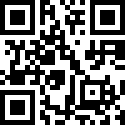Unit 49. Questions (2) (Do you know where …? / She asked me where …)
(Вопросы 2)
When we ask for information, we often say Do you know…? / Could you tell me…? etc. If you begin a question like this, the word order is different from a simple question.
Compare:
| Where has Tom gone? | (simple question) | ||
| but | Do you know where Tom has gone? | (not ‘Do you know where has Tom gone?’) |
When the question (Where has Tom gone?) is part of a longer sentence (Do you know…? / I don't know… / Can you tell me…? etc.), it loses the normal question word order.
Compare:
|
Be careful with do/does/did questions:
|
Use if or whether where there is no other question word (what, why etc.):
- Did anybody see you?
but
- Do you know if (or whether) anybody saw you?
The same changes in word order happen in reported questions:
| direct | The police officer said to us, ‘Where are you going?’ | |
| reported | The police officer asked us where we were going. | |
| direct | Clare said, ‘What time do the banks close?’ | |
| reported | Clare wanted to know what time the banks closed. |
In reported questions, the verb usually changes to the past (were, closed). See Unit 46 Reported speech (1) (He said that …).
Study these examples. You had an interview for a job and these were some of the questions the interviewer asked you:

Later you tell a friend what the interviewer asked you. You use reported speech:
- She asked (me) how old I was.
- She wanted to know what I did in my spare time.
- She asked (me) how long I had been working in my present job.
- She asked (me) why I had applied for the job. (or … why I applied)
- She wanted to know whether (or if) I could speak any foreign languages.
- She asked whether (or if) I had a driving licence. (or …I had got…)
![агентство Лангуст [переход на главную] Агентство Лангуст [переход на главную]](/pic/logo.gif)

